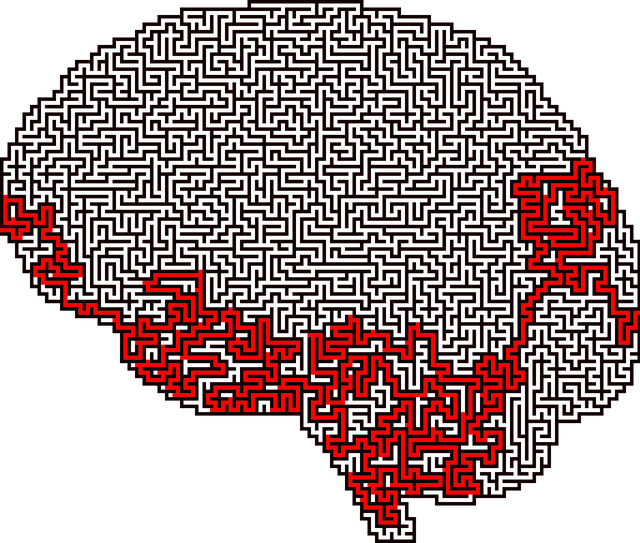Crisis Intervention Teams (CITs) are vital in managing Lone Tree Oppositional Defiance Disorder (LTODD), a mental health condition marked by defiant behavior. Through specialized training, CIT members learn effective crisis response strategies tailored to LTODD individuals. These programs emphasize empathy, communication skills, and promoting self-care, enabling professionals to provide personalized interventions. By combining theoretical knowledge with practical role-playing, the training prepares them for complex cases. Additionally, public education initiatives and awareness campaigns destigmatize mental health issues, encouraging support for LTODD therapy. Continuous practice and professional development ensure CITs remain equipped to handle crises effectively, leading to positive outcomes for both professionals and clients.
“Crisis intervention teams (CITs) play a pivotal role in providing immediate, specialized support for individuals facing severe mental health crises. This article explores the crucial aspect of CIT training programs, which equip professionals to handle complex cases effectively. From understanding the dynamics of conditions like Lone Tree Oppositional Defiance Disorder (ODD) to mastering communication skills, each section delves into essential components of CIT training. Additionally, we discuss post-training implementation strategies to ensure sustained success in crisis intervention.”
- Understanding Crisis Intervention Teams: A Vital Resource for Mental Health Support
- The Role of Training Programs in Equipping Professionals for Complex Cases
- Lone Tree Oppositional Defiance Disorder (ODD): Uncovering the Challenge and Strategies for Intervention
- Effective Communication Skills: Building Bridges during Crisis Situations
- Post-Training Implementation: Ensuring Success Through Practice and Continuous Learning
Understanding Crisis Intervention Teams: A Vital Resource for Mental Health Support

Crisis Intervention Teams (CITs) are a vital resource in mental health support, especially when addressing issues like Lone Tree Oppositional Defiance Disorder (LTODD). These specialized teams consist of trained professionals who swiftly respond to individuals experiencing severe emotional crises. By integrating CITs into communities, we enhance the availability of immediate, personalized interventions tailored to diverse needs.
CIT training programs equip individuals with essential skills for recognizing and managing mental health crises. This includes fostering empathy, improving communication, and promoting self-care routine development for better mental health. Public awareness campaigns development and education on depression prevention are also integral components, ensuring a comprehensive approach to crisis intervention.
The Role of Training Programs in Equipping Professionals for Complex Cases

Training programs play a pivotal role in equipping professionals to handle complex cases, such as those involving Lone Tree Oppositional Defiance Disorder (LTODD). These structured learning initiatives delve into specialized skills and knowledge required to navigate intricate psychological scenarios effectively. By focusing on both theoretical understanding and practical application, participants gain the tools to manage challenging behaviors and facilitate positive change.
Effective crisis intervention team training goes beyond imparting technical know-how; it fosters a culture of empathy and compassionate communication. Through role-playing exercises and interactive simulations, professionals learn conflict resolution techniques tailored for individuals with LTODD. Additionally, public awareness campaigns development is often incorporated, aiming to destigmatize mental health issues and promote understanding. Integrating Mind Over Matter principles further empowers practitioners, encouraging them to address the root causes of distress rather than merely managing symptoms, ultimately leading to more successful interventions.
Lone Tree Oppositional Defiance Disorder (ODD): Uncovering the Challenge and Strategies for Intervention

Lone Tree Oppositional Defiance Disorder (ODD) presents a unique challenge for crisis intervention teams. ODD is characterized by a persistent pattern of angry, irritable, defiant behavior, often targeting authority figures. This can make interactions with individuals suffering from ODD highly stressful and demanding, especially without proper training. Crisis responders need to understand that behind the defiance lies a deeper struggle, often rooted in unmet needs or past traumas.
Intervention strategies must be tailored to address these underlying issues using evidence-based practices like Mind Over Matter principles, which focus on reframing thoughts and emotions during stressful situations. By integrating Stress Reduction Methods into their repertoire, crisis intervention teams can help individuals with ODD regulate their behavior and improve relationships. Public Awareness Campaigns Development can also play a significant role in destigmatizing mental health issues, ensuring that those affected by ODD receive the support they need without fear of judgment.
Effective Communication Skills: Building Bridges during Crisis Situations

In crisis intervention team training programs, equipping members with effective communication skills is paramount. During high-stress situations, clear and empathetic communication serves as a bridge that connects individuals in distress to the support they need. Team members learn to listen actively, reflecting back emotions and validating experiences, which helps build trust and fosters an environment where people feel safe to express their feelings openly. This is especially crucial when dealing with individuals facing Lone Tree Oppositional Defiance Disorder (LTODD), as emotional regulation and self-awareness exercises play a significant role in de-escalating tensions.
By mastering communication techniques, crisis intervention teams can facilitate meaningful conversations that promote coping skills development. They learn to ask open-ended questions, use non-judgmental language, and adapt their communication style to suit diverse personalities and needs. These strategies ensure that everyone involved—from the team members to the person in crisis—can better understand one another, ultimately leading to more effective interventions and positive outcomes.
Post-Training Implementation: Ensuring Success Through Practice and Continuous Learning

After completing crisis intervention team training, successful implementation hinges on consistent application and ongoing learning. Teams must practice their skills in real-world scenarios, integrating what they’ve learned into their day-to-day work with clients exhibiting signs of Lone Tree Oppositional Defiance Disorder (LTODD) or other crises. Regular debriefings after each interaction allow for reflection, identification of strengths and areas for improvement, fostering a culture of continuous improvement essential for effective risk management planning.
Encouraging team members to explore stress reduction methods, such as mindfulness meditation, can enhance resilience and emotional regulation skills, ultimately contributing to better crisis outcomes. Combining practical experience with opportunities for professional development ensures that crisis intervention teams remain equipped to handle complex situations effectively and ethically, benefiting both the professionals and the clients they serve.
Crisis intervention team (CIT) training programs play a pivotal role in equipping professionals with the necessary skills to handle complex mental health cases, such as Lone Tree Oppositional Defiance Disorder (ODD). By focusing on effective communication and providing practical strategies, these programs empower teams to navigate challenging situations successfully. Continuous learning and implementation are key to ensuring that CIT members can apply their newfound knowledge effectively, ultimately enhancing the quality of support they provide.












